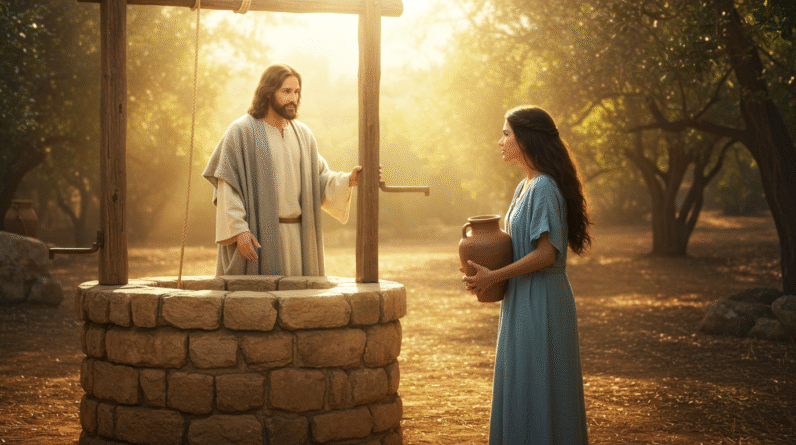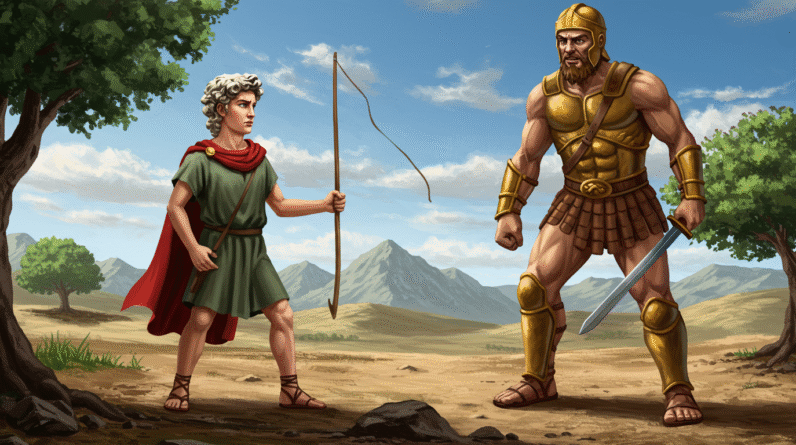Discover Esther’s bravery and faith in Esther 4:13-16, as her courage to defy odds inspires us to find purpose amidst life’s challenges. Immerse in her timeless story.

Esther: Courage For A Greater Purpose – Esther 4:13-16
In the grand tapestry of biblical narratives, few characters shine as brightly as Esther, a young Jewish woman who rose to the pinnacle of Persian royalty. Her story, nestled within the rich fabric of the Bible, illustrates the profound impact of courage and faith. The narrative of Esther unfolds in the Book of Esther, primarily in Esther 4:13-16, where her resolve and bravery come to the fore, making her a timeless symbol of unwavering strength in the face of unfathomable odds.
Esther’s Story in the Bible
Esther’s tale is a convergence of destiny, courage, and divine intervention. Born a Jewish orphan, she was adopted and raised by her cousin Mordecai. Her life took an unexpected turn when she was chosen to be queen by the Persian king Ahasuerus, also known as Xerxes. This was a period when the Jewish people were living as exiles in Persia, and a covert plot, spearheaded by the king’s vizier Haman, threatened their extermination.
The crux of Esther’s narrative is her decision to intervene on behalf of her people. Mordecai informed Esther of the looming danger, compelling her to leverage her royal influence to avert disaster. In Esther 4:13-14, Mordecai sends a compelling message to Esther, urging her to recognize her potentially providential role for such a critical time. Esther’s courageous response in Esther 4:16 to risk her life by approaching the king uninvited symbolizes the epitome of bravery and selflessness, stating, “If I perish, I perish.”
Lessons from Esther’s Life
Esther’s story is profound, offering a wealth of lessons that resonate across the ages. One of the primary lessons from her life is the power of courage. Despite the real risk of death, Esther did not shy away from the challenge. Her story teaches us that courage can pave the way for significant change, especially when it comes to standing up against injustice and prejudice.
Faith is another cornerstone of Esther’s narrative. She exhibited unwavering faith not only in God but also in her own purpose. In moments of deep uncertainty, Esther leaned into her faith, demonstrating the strength that comes from trust in a higher purpose. This highlights the necessity of maintaining faith during challenges, reminding us that faith combines with courage to cultivate resilience.
Moreover, Esther’s story elucidates the significance of duty and the potential impact of individual actions. Her life underscores the importance of recognizing one’s unique position and using it for the greater good. Esther’s willingness to act selflessly for her people sets a standard for leadership marked by responsibility and empathy.
Connection to Today’s World
Esther’s narrative offers rich allegories for contemporary issues. In today’s world, where individuals frequently encounter challenges that test their convictions, Esther’s story is a beacon of encouragement. Across various domains—be it social dynamics, corporate environments, or personal relationships—courage and faith remain critical virtues for influencing change. Her narrative exemplifies that wielding influence for the common good is both powerful and necessary.
The societal climate today mirrors the challenges Esther faced, characterized by complex cultural dynamics and ethical complexities. Her story urges us to evaluate how we can leverage our resources, positions, and voices to advocate for justice and kindness. Esther represents the profound effect that can arise from readiness to step out of comfort zones in service of others.
Key Bible Verse
A key verse that encapsulates Esther’s profound journey and moment of courage is found in Esther 4:16: “Go, gather together all the Jews who are in Susa, and fast for me. Do not eat or drink for three days, night or day. I and my attendants will fast as you do. When this is done, I will go to the king, even though it is against the law. And if I perish, I perish.” This pronouncement exemplifies Esther’s unyielding conviction and willingness to act irrespective of personal cost, underscoring the timeless principle that courage often dances with vulnerability.
Thought-Provoking Question
Reflecting on Esther’s story, consider this: What role could courage and faith play in your life when you face a critical decision? How might your unique position provide an opportunity to influence greater outcomes for good?
Historical/Cultural Context
The backdrop of Esther’s narrative is vividly set in the Persian Empire during the reign of King Xerxes. This era was characterized by opulence, political intrigue, and a diverse tapestry of cultures and religions. Understanding the customs and societal norms of ancient Persia provides deeper insight into the magnitude of Esther’s actions. The risk she took by approaching the king without an invitation was not just a rule-breaking act—it was a defiance of rigid, and potentially deadly, protocol, further highlighting the gravity of her courage.
Comparison with Other Characters
Esther’s courage can be compared with that of Daniel, another prominent biblical figure who displayed unwavering faith in God despite facing decrees that put his life at risk. Like Esther, Daniel chose obedience and integrity over self-preservation, demonstrating that courage and faith often work in tandem to meet divine purposes.
A Prayer Inspired by Esther’s Story
Heavenly Father, thank You for the inspiring example of Esther and her courage in the face of immense danger. Instill in us her boldness and unwavering faith, that we might recognize and seize opportunities to serve others with integrity and compassion. Guide us in moments of doubt, empower us to stand for truth, and help us to align our actions with Your greater purpose. Amen.







